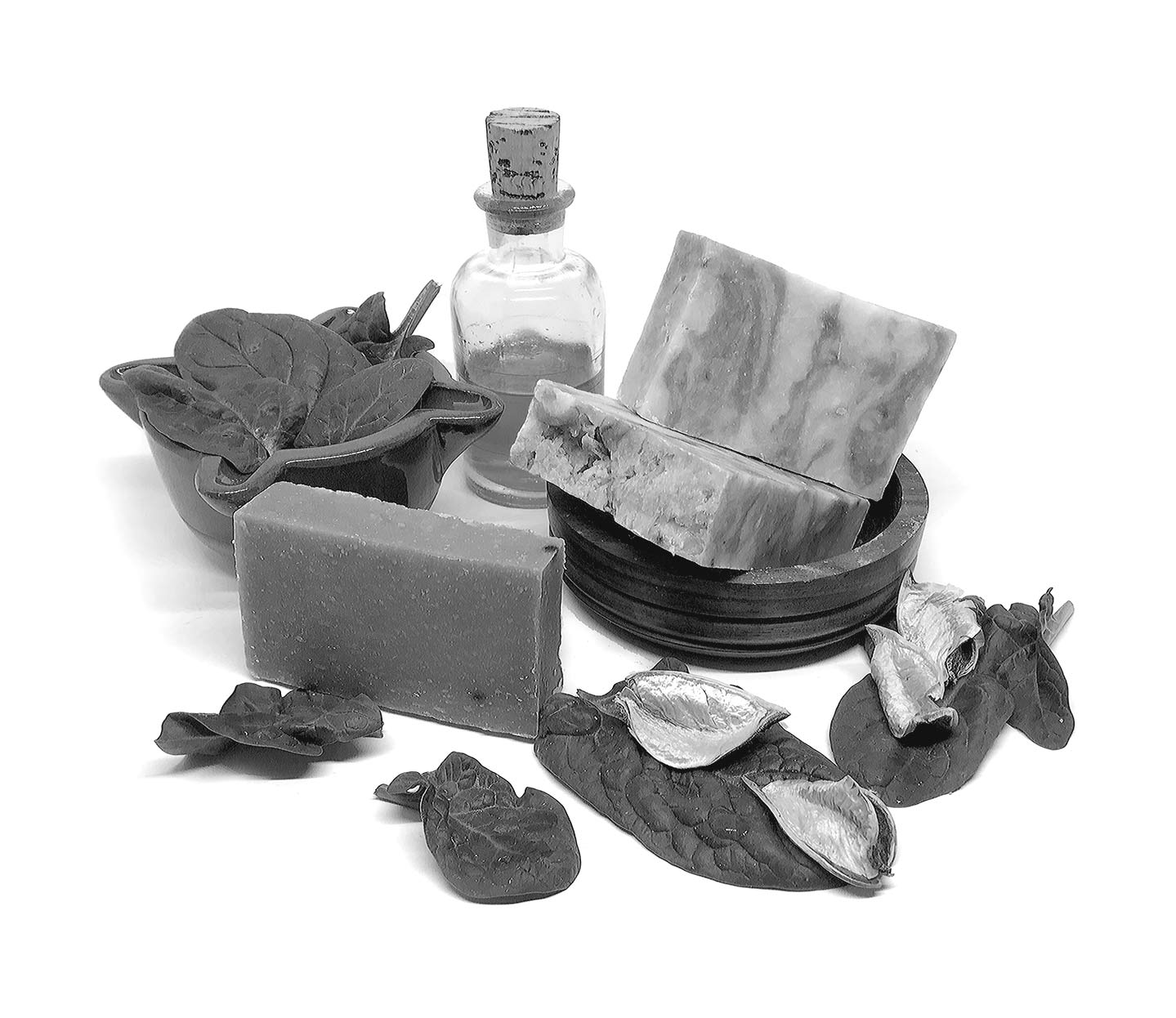
The origin of soap, defined today as the alkaline salt of a fatty acid, undoubtedly dates back to long before the Christian era: going back to the ancient Sumerian civilisation, we find the first reference to it on tablets found in Mesopotamia, 3,000 BC. Later, an Egyptian papyrus from 1,500 BC, described as an "authentic medical treatise", refers to the use of a certain soapy substance used for washing linen and cotton, and as a treatment for skin diseases.
But it was the Romans who turned soap-making into a true craft, making it an article of daily use, both for hygiene and to prevent disease. After the fall of the Roman Empire in 467 AD, the use of soap diminished almost completely due to the disappearance of public baths, expressly forbidden by the Church, and the consequent lack of interest in personal hygiene.
It is already in the 7th century when the manufacture of soap appeared and soap-making guilds began to appear all over Europe (France, Italy, Spain, etc.), but it became a luxury item, as it was subject to the Royal Monopolies that levied too high taxes on the product, so it was only within the reach of the upper classes.
In the 10th century, Europe suffered a great depopulation and plagues and epidemics increased the adult and infant mortality rate. At that time they were manufactured in Spain in the "Almonas", only with the authorisation of the reigning monarch. The most famous of these almonas was the one in Triana (Seville), which operated for 400 years, and where the well-known Castilla soap was made.
From the 9th century onwards, Marseilles was the centre of the soap-making business, and later, in the 14th century, it passed to Venice. It is interesting to note that in the 14th-18th centuries, the monarchs of the Old Continent reserved the privilege of granting licences to build and operate soap factories.
From 1789 onwards, royal monopolies disappeared, a date that coincided with Leblanc's revolutionary invention to manufacture sodium carbonate, which enabled craftsmen to make sodium soap on an industrial scale from caustic soda, and not from ashes as had been done until then.
It was these developments that gave rise to a real soap industry, which spread to all European countries. The product became much cheaper and its use became widespread in all social classes. As a result, skin diseases, and above all their contagiousness, which particularly affected children, began to disappear.
All this, together with the use of underwear, led to the affirmation of a transcendental fact at the time: thanks to the use of soap and its impact on hygiene, it became possible for the population of Europe to grow, due to the decrease in the causes of mortality. Consequently, in the 19th century the population in Europe tripled and life expectancy increased from 30 to 50 years, solely and exclusively due to the use of soap.
It can therefore be argued that the birth of the soap industry was as important to society as the steam engine was to the Industrial Revolution.
There is a legend according to which the name 'soap' comes from the Italian word 'sapone', which in turn comes from Monte Sapo, one of the hills of Rome where ritual animal sacrifices were performed. The rain washed the animal fat along with the ashes of the sacrifice into the river Tiber, and it was the local women who noticed that the residue improved the washing of clothes.
And that it was thanks to the great contribution made by the British chemist Charles Tennant, who, by reacting chlorine gas with slaked lime, obtained a powder - the so-called "bleaching powder" - which was used to whiten cotton, a cheap fabric within everyone's reach, making it widely used in underwear, which forced the soap industry to multiply in order to be able to wash all the textiles that began to be produced at the end of the 18th century?
We also know from the Bible that Moses, in addition to the Ten Commandments, gave the Israelites detailed laws dealing with personal cleanliness and that these were intended, in addition to greater cleanliness among the people, to preserve their health by preventing infections and contagions.

+34 976 845 740
info@camachosacristan.com
Camacho Sacristán S.L.U.
Manufacturer No. 8274 - CS